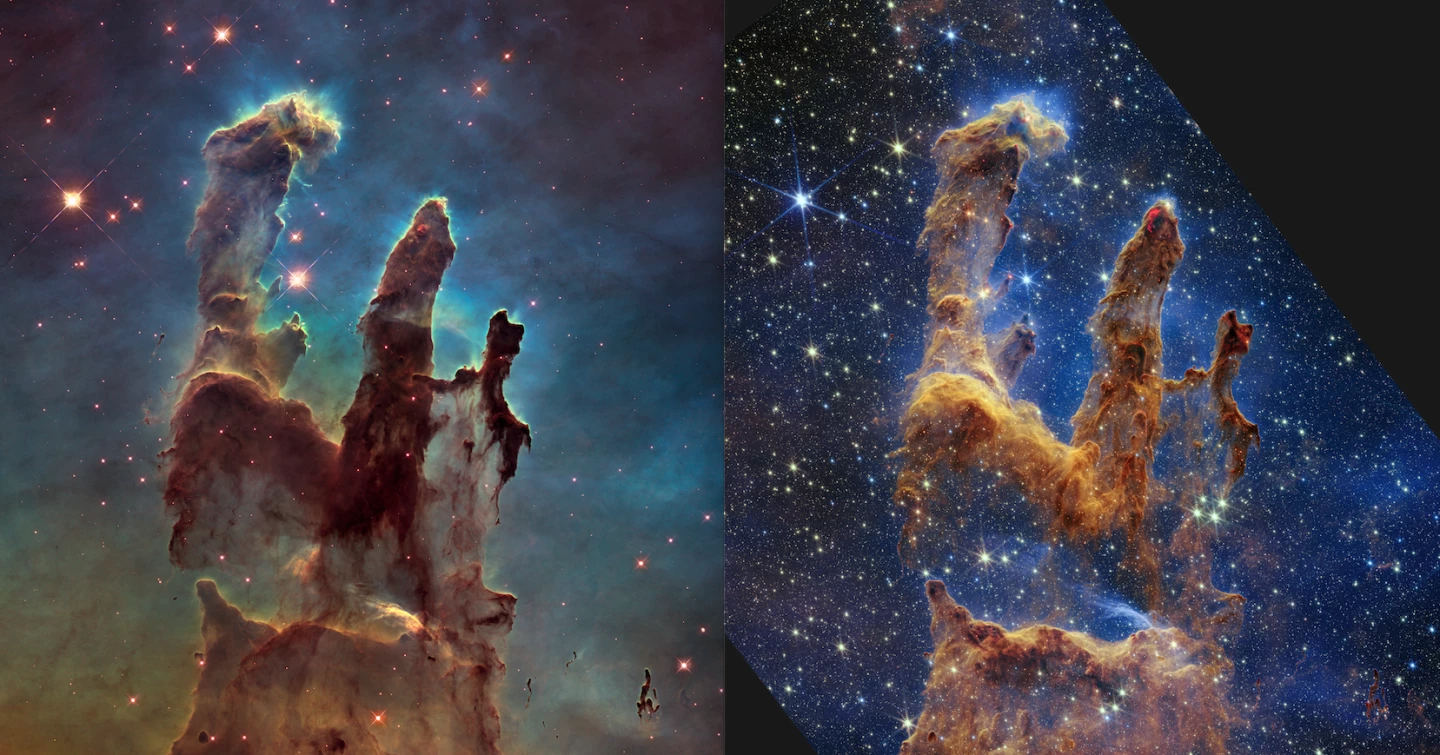The James Webb Space Telescope has already snapped some incredible images in its short career, but this new one is a doozy. The plucky young spacecraft has now taken images of the iconic Pillars of Creation, revealing new details and giving a peek behind the cloudy curtain.
The Pillars of Creation is a formation of interstellar dust and gas located within the Eagle Nebula, about 6,500 light-years away. Its elegant shapes and dramatic story as a star-forming region make it fantastic fodder for astro-photography, so it’s no surprise that it’s been a favored subject by telescopes like Hubble, Herschel and Spitzer.
Now James Webb has turned its powerful eyes onto the structure, and the results are, of course, amazing. Its much higher resolution allows for more detail to be pulled out of the wispy clouds, while the Near-Infrared Camera (NIRCam) brings far more stars into focus.

The pillars are pulsing with young stars born as pockets of dust and gas collapse under their own gravity. As they form, these baby stars are known to fire off jets that can create bow shocks when they hit other material around them. This produces energetic hydrogen molecules that are visible as a bright red glow, clearly seen here in the tips of the second and third pillars, as well as the one farther down in the center.
Intriguingly, the bright stars that dot the image aren’t in the distant background – they’re all fairly local, revealing just how crowded this star-forming region is becoming.
The astronomers say that Webb’s new view of the popularly papped Pillars will help inform our understanding and models of star formation. And of course, images like this will no doubt continue to inspire any who look upon them.
Source: ESA





